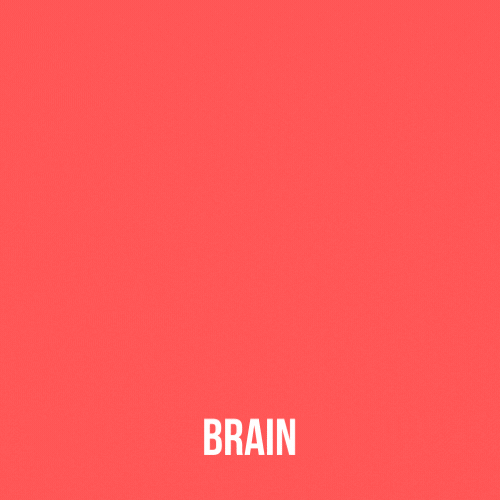
About Us

The Brain Injury Association of Virginia is the primary source of information and personal support for thousands of individuals, families, and professionals whose lives have been impacted by brain injury. We help communities through education, outreach, public awareness, advocacy, and volunteer opportunities. We provide case consultations, membership programs, and an online resource library and statewide resource directory. Learn more about us by going to our website www.biav.net or give us a call at (804)355-5748.

Brain Injury Association of Virginia
- Website: www.biav.net
- Email: info@biav.net
- Phone: (804) 355- 5748
-
Working with Individuals with Brain Injury – A Professionals GuideBrain injury can be difficult to diagnose, but knowing how to identify and work with an individual who has sustained a brain injury can lead to a more productive relationship with them. This tip sheet is intended to offer information on screening for possible brain injury and provide strategies for engaging an individual in an appropriate plan of care.You must log in to access content.
-
Treating Patients with Traumatic Brain Injury – from SAMHSAPublic awareness of TBI has shifted dramatically since it was dubbed “a silent epidemic” in 1980; however, appreciation of its effects has not garnered the attention of professionals outside of medical rehabilitation. Particularly among behavioral health specialists, a gap remains in knowledge about TBI, understanding its implications for behavioral health conditions (i.e., mental illness and substance use disorders), and active consideration of treatment implications. This fact sheet briefly summarizes key elements of TBI and describe its relevance to behavioral health, including recommendations for how behavioral health professionals can better meet the needs of patients who have a history of TBI.You must log in to access content.
-
Traumatic Brain Injury and Domestic Violence: Facts for ProfessionalsThe signs and behaviors associated with TBI and domestic violence can look very similar, as we explain in this fact sheet – the impact of physical and emotional violence on the body and mind is complex. That’s why practicing trauma informed care when interacting with survivors is key.You must log in to access content.
-
Specialist QuestionnaireBIAV has an extensive Resource Directory. These lists are for the brain injury community to find professionals specializing in the evaluation and treatment of brain injury. Please provide information as you would like it to appear in our Directory if you provide direct services to people with brain injury and send to info@biav.netYou must log in to access content.
-
Smart Phone Apps: Getting the Most out of TechnologyYou may have heard the question: “is there an app for that?” Well you may be surprised what is available on your smart phone. There are so many low cost and free apps you can download for just about anything. We’ve selected the following apps based on what we know individuals affected by brain injury may need help with for different needs.You must log in to access content.
-
How BIAV HelpsLearn about the services BIAV provides to people with brain injury, caregivers, family and friends, and professionals.You must log in to access content.
-
Housing Toolkit• This Housing Toolkit was designed to: o Increase understanding of and collaboration with the housing community to build state funded brain injury program capacity and better serve our community: Gain an understanding of housing agencies/providers and how the housing community defines the issues they are addressing. With that knowledge, develop and provide resources to state funded program staff to build their capacity, including client tip sheets, a housing Quick Guide, and webinar. Identify housing resources for BIAV’s online resource directory; distribute information to state funded program staff.You must log in to access content.
-
Homelessness & Brain Injury Professional’s Guide• This packet is intended to give homeless services providers and advocates information and supports related to the intersection between brain injury and homelessness. Specifically, Section I contains background information about BI and a list of online resources to access, if you wish to learn more. Section II provides information about the effects of and the association between brain injuries and homelessness. Section III shares an overview of BI screening tools, and how to screen for a brain injury using the Ohio State University TBI Identification Method (OSU TBI-ID). Lastly, Section IV includes referral information and resources available to share with clients.You must log in to access content.
-
DV & TBI Professional’s GuideThis packet is intended to provide domestic and sexual violence advocates and workers with information about the intersection between brain injury and domestic violence. Specifically, section I of this packet contains background information about brain injury as well as a list of online resources that can be accessed if you wish to learn more. Section II describes the importance of brain injury screening and provides information on screening tools that have been used with survivors of domestic violence. Lastly, section III includes referral information and state resources that can be shared with clients.You must log in to access content.
| Access Date | Quiz Result | Score | Actions |
|---|
Please Login
Login Info
NASW MEMBERS: Login with your NASW membership email and the password CONNECT22
Non-MEMBERS: Click the Create Account button to begin
Need Help?
Visit the FAQ page where most questions are addressed. Live tech support chat is available at the bottom of the page. You can also email naswvadc22@commpartners.com.


